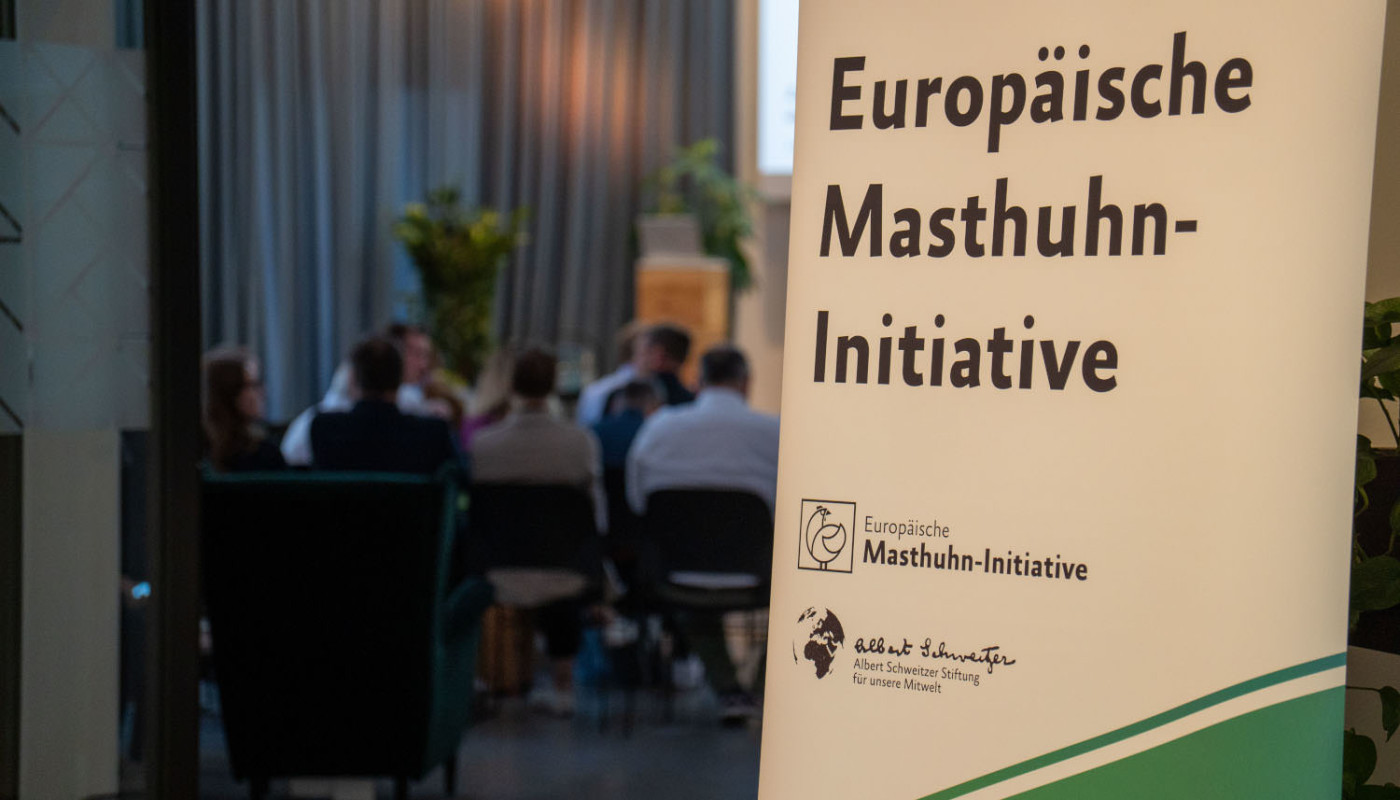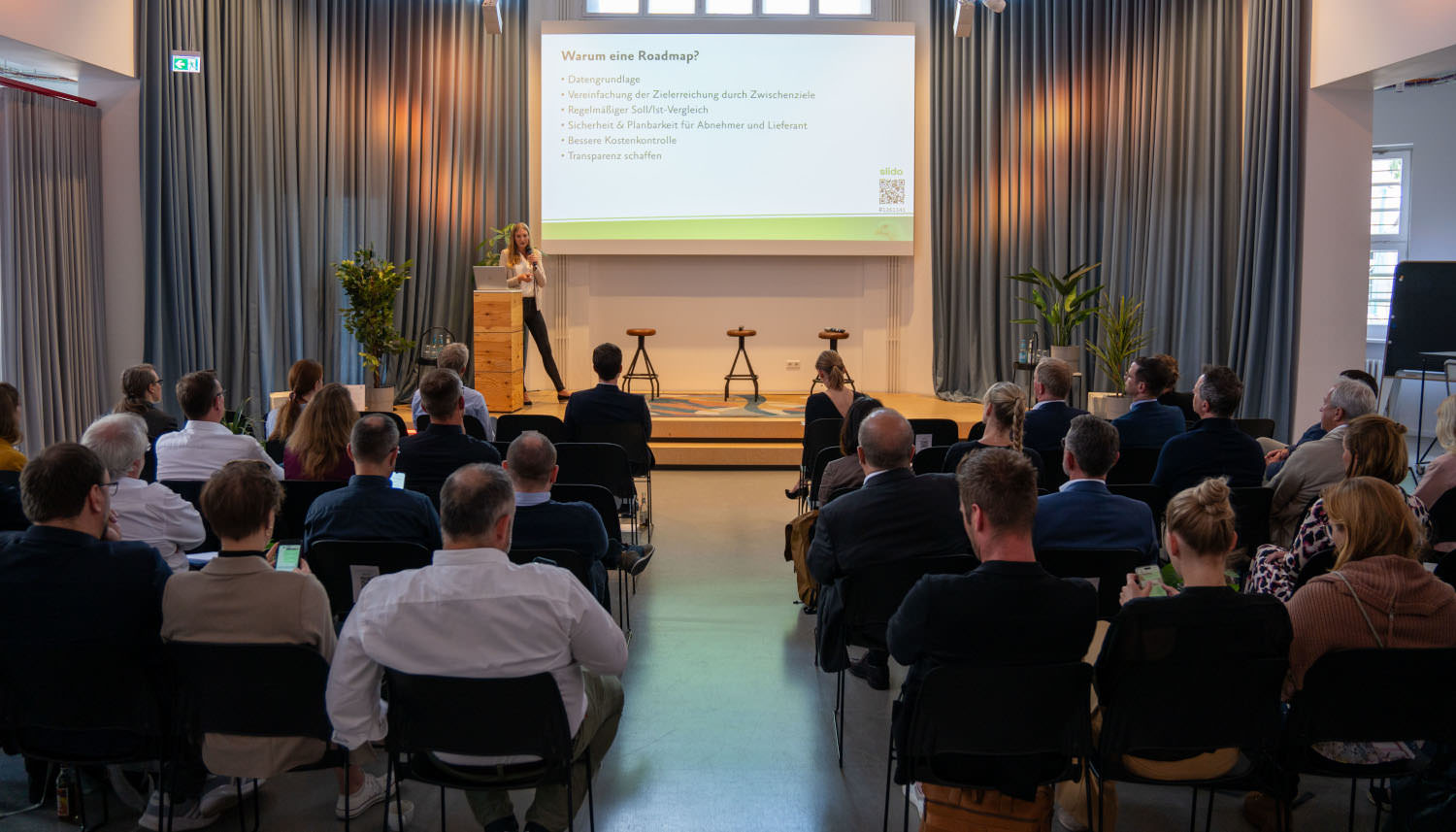
The Albert Schweitzer Foundation organized its second Round Table on the European Chicken Commitment (ECC). 36 people from 30 companies took up our invitation to attend the event, where they had the opportunity to talk to and network with other representatives from the worlds of business, animal welfare, science and academia. Producers and buyers explained how they are putting the initiative into practice and the challenges they need to overcome in the process.
The event focused on helping companies already signed up to the ECC to implement its requirements as well as on encouraging interested companies not yet signed up to take the next steps.
On the agenda: learning with and from each other
In the morning session, the participants listened to a number of talks where they learned all about the status of the ECC and the current situation on the poultry market. One farmer gave an impressive account of his real-life experience of chicken farming under more stringent animal welfare standards and explained the benefits over conventional farming. In the subsequent panel discussion, and with the lively participation of the audience, representatives from various sectors of the food industry explained how they implement the commitment’s criteria.
In the afternoon session, the participants got together in small groups to brainstorm potential ways of addressing some of the key challenges of the ECC. They also formulated specific demands on politicians, the most important being simplified and shortened approval procedures as well as construction cost subsidies for the numerous operations ready and willing to convert their facilities.
»With all these different approaches to tackling the challenges we face, we came away with a lot to think about. I don’t think there is a single person here who doesn’t want to tackle the problems,« said Daniel Heitmeier of Sodexo, summing up his impressions from the day.
Anna-Lena Kribbeler of Hans im Glück also praised the atmosphere of openness: »We had the chance to talk about the challenges we face and also reach agreements on how we can achieve progress together and speed up the transition a little more.«

A recipe for success: commitment, collaboration and constructive dialogue
The Round Table made it clear that companies have to take responsibility for animal welfare. This is in their own interest, too, because signing up to the European Chicken Commitment has a positive impact on not only animal welfare but also on product quality and sustainability targets.
»We are certainly very interested in seeing a uniform European standard in the broiler chicken sector«, says Stefan Schmerdtmann of The German Poultry Family. »And we’re here because we need to have this discussion with industry representatives and, of course, with the Albert Schweitzer Foundation.«
The Albert Schweitzer Foundation provides expert support for companies in their efforts to successfully transition to the ECC criteria. It helps companies to develop individual roadmaps, recommends communication measures and, through events like the Round Table, provides a platform for participants to share their ideas and experience.
The task now is to make these numerous and highly promising solution approaches a reality and work together to address the industry-wide challenges. Strong collaboration and ongoing dialogue within the industry are of vital importance here, as André Müller of the Erlangen-Nuremberg student service organization can confirm: »The biggest benefit for me today was having the chance to meet not only colleagues from my own line of business but also producers and wholesalers because it shows that we are all facing the same problems but are also ready and willing to meet these standards.«
The European Chicken Commitment
The European Chicken Commitment was launched to bring about across-the-board improvements in the broiler chicken industry and establish a new minimum, Europe-wide standard. In Germany alone, more than 600 million chickens are raised and slaughtered every year. In addition to the Albert Schweitzer Foundation, 37 organizations from all over Europe are currently working on the implementation of the initiative, which defines a range of criteria such as the use of more robust, slower-growing breeds and lower stocking densities. The requirements represent a sensible balance between improvements for chickens and economic efficiency.